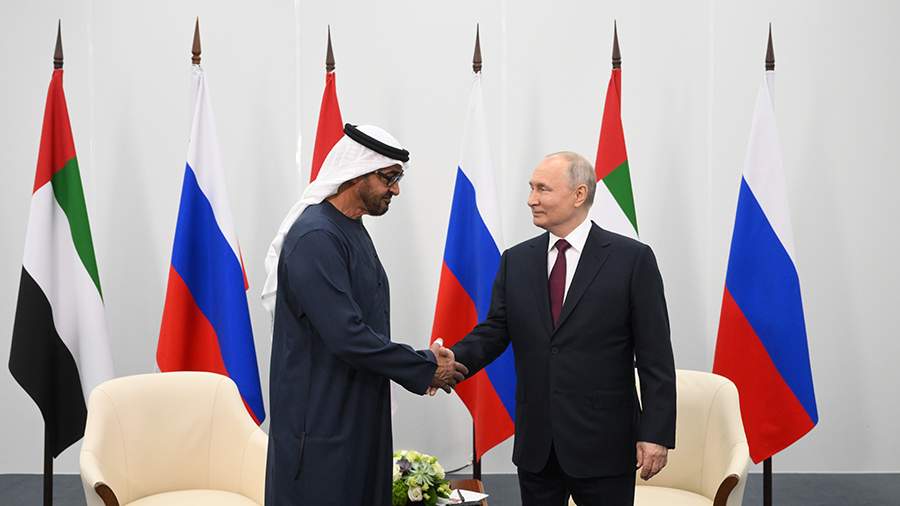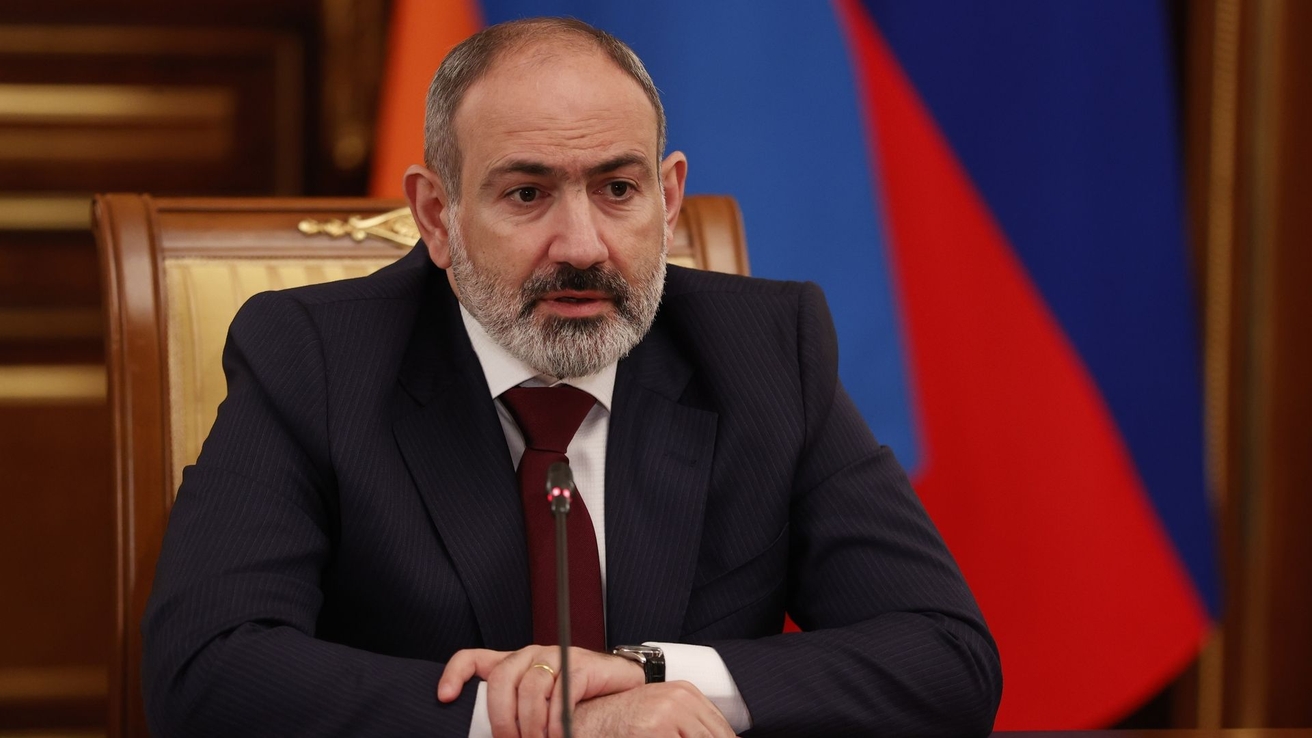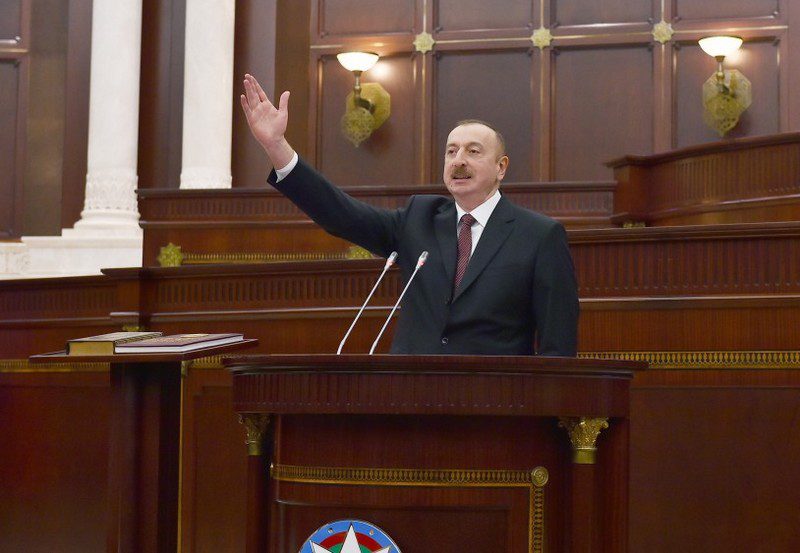Two polls were conducted in Armenia recently, giving the people a chance to express their views on various issues, including the sharp decline in Prime Minister Nikol Pashinyan’s popularity.
The first survey was conducted January 23-March 4, 2023 by the Center for Insights in Survey Research, a project of the Washington, D.C.-based International Republican Institute. This scientific survey, based on a random sample of Armenia’s population, was funded by the United States Agency for International Development (USAID).
Question: “Do you think Armenia is heading in the right direction or wrong direction?” 52%: wrong direction (up from 11%-14% in 2018 when Pashinyan first came to power); 36%: right direction (down from 72%-73% in 2018).
Question: “How satisfied or dissatisfied are you with the pace of democracy in our country?” 17%: satisfied; 46%: dissatisfied; 35%: no change.
Question: “How much interest do you have in politics?” 43%: very much or somewhat interested; 57%: not at all or somewhat not interested.
Question: “How would you evaluate the prevailing mood of the Armenian population?” 44%: future will be better or somewhat better; 55%: insecurity, worry, fear for the future, total disappointment, and disbelief in any improvement.
Question: “Which politician or public person do you trust the most?” 64%: none; 14%: Nikol Pashinyan; 3%: Ararat Mirzoyan; 2%: Robert Kocharyan; others 2% each.
Question: “Which political party or alliance, if any, you would vote for if national parliamentary elections were held next Sunday?” 47%: would not vote or refused to answer or don’t know; 17%: Civil Contract; 5% Armenia Alliance; 4%: Public Voice party; 2%: Prosperous Armenia party; 2%: ARF Dashnaktsutyun; others 1% each.
Question: “How satisfied or dissatisfied are you with the following institutions?” Armenian Apostolic Church, 54%: very or somewhat satisfied; 40%: very or somewhat dissatisfied; Prime Minister’s office, 38%: satisfied (down from 82%-85% in 2018); 61%: dissatisfied (up from 13-17% in 2018).
Question: “How do you feel about the direction of each of the following spheres during the past six months?” Freedom of speech, 56%: improved a lot or somewhat improved (down from 73%-83% in 2018); 18%: regressed a lot or somewhat regressed (up from 3%-6% in 2018); 26%: no change (up from 19% in 2018). Foreign policy, 37%: improved a lot or somewhat improved (same as 2019); 33%: somewhat regressed or regressed a lot (up from 17% in 2019); 26%: no change (down from 39% in 2019). Armenia’s policy on Artsakh, 10%: improved a lot or somewhat improved (down from 32% in 2019); 69%: regressed a lot or somewhat regressed (up from 18% in 2019); 18%: no change (down from 45% in 2019). Direction of fight against corruption, 43%: improved (down from 82% in 2018); 22%: regressed (up from 2% in 2018); 32%: no change (up from 14% in 2018).
Question: “What do you think is the biggest success of the government in the last 6 months?” 43%: none; 21%: don’t know or refused to answer; 6%: development of diplomatic relation; other minor issues.
Question: “What do you think is the biggest failure of the government in the last 6 months?” 21%: don’t know or refused to answer; 15%: closure of Lachin Corridor; 9%: overturning the Artsakh issue; 8%: national security of Armenia and border issues; 7%: loss of territories; other minor issues.
Question: “What are the things Pashinyan’s government must achieve in the next 6 months?” 23%: improvement of army conditions; 22%: protection of Armenia’s national security and borders; 16%: creation of jobs; 15%: establish peace; 13%: opening of Lachin Corridor; 13%: Pro-Armenian settlement of the Artsakh issue.
Question: “To what extent is corruption a problem?” 73%: very large or somewhat large problem; 25%: somewhat small, very small or no problem.
Question: “How do you evaluate the relationship between Armenia and…?” 96%: France (very good or somewhat good); 91%: Iran; 88%: United States; 86%: European Union; 84%: China; 80%: Georgia; 50%: Russia; 44%: Ukraine; 23%: Turkey; 4%: Azerbaijan. The relationship between Armenia and Russia has gone down from 87%-92% in 2018 to 50% good in 2023. The relationship between Armenia and Turkey has gone up from 1%-11% in 2018 to 23% good in 2023, while 75% of Armenia’s citizens (down from 85% in 2018) consider the relationship bad.
A second poll was carried out in May 2023 by the Marketing Professional Group, affiliated with Gallup International. This is a scientific survey based on a random sample of Armenia’s population.
Question: How do you evaluate Nikol Pashinyan’s recognition of Artsakh as a part of Azerbaijan? 3.8%: definitely positive; 5.4%: rather positive; 63.4%: not positive; 18.5%: rather not positive; 8.9%: no answer.
Question: Do you think it is possible for Artsakh Armenians to exist as an ethnic minority in Azerbaijan? 2.8%: yes; 5.6%: rather yes; 77.7%: no; 8.7%: rather no; 5.1%: no answer.
Question: “Which of these judgments do you agree with?” 32.8%: Pashinyan is trying to conduct a balanced policy with the West and Russia; 20.5%: Pashinyan is trying to integrate Armenia with Europe, the West and NATO circles; 14.7%: Pashinyan is aiming to bring Armenia closer to Azerbaijan and Turkey; 12.9%: Pashinyan’s actions are directed to push Russia out of Armenia; 19%: no answer.
Question: “Given Armenia’s internal and external challenges, is it necessary to hold extraordinary parliamentary elections and form a new government?” 41%: definitely necessary; 18.9%: rather necessary; 12.2%: rather not necessary; 19.5%: not necessary; 8.5%: no answer.
Question: “Turkey expressed its displeasure at the placement of the Nemesis statue in Yerevan and as a first step closed its airspace to Armenian flights. Do you think the Armenian government or city officials should give in to Turkish pressures and dismantle the memorial dedicated to the Nemesis heroes?” 82.5%: definitely no; 7.7%: rather no; 2.6%: definitely yes; 3.5%: rather yes; 3.5%: no answer.
Question: “Did you participate in the 2018 revolution?” In the 2023 survey, 62.6%: no; 37.4%: yes. In the 2018 survey, 91%: yes; 9%: no.
Question: “Is it right for protesters to block streets and movement of cars?” In the 2023 survey, 44.5%: yes; 50.8%: no. In the 2018 survey, 87.1%: yes; 8.7%: no.
Question: “Five years have passed since the revolution: In the meantime, how well were your expectations realized?” In the 2023 survey, 3.8%: fully realized; 21.5%: partially realized; 18%: partially not realized; 52.1%: not realized. In the 2018 survey, 14.4 %: fully realized; 64.2%: partially realized; 7.6%: partially not realized; 10.9%: not realized.
Question: “Evaluate Prime Minister Pashinyan’s performance.” In the 2023 survey, 5.4%: fully positive; 13.4%: rather positive; 24.2%: rather negative; 47.1%: negative; 10%: no answer. In the 2018 survey, 45.4%: positive; 46.2%: rather positive; 3.9%: rather negative; 2.4%: negative.
We all have our personal opinions, but it is important to know what the citizens of Armenia think about these issues. There are major changes in their perceptions from 2018 to 2023.






